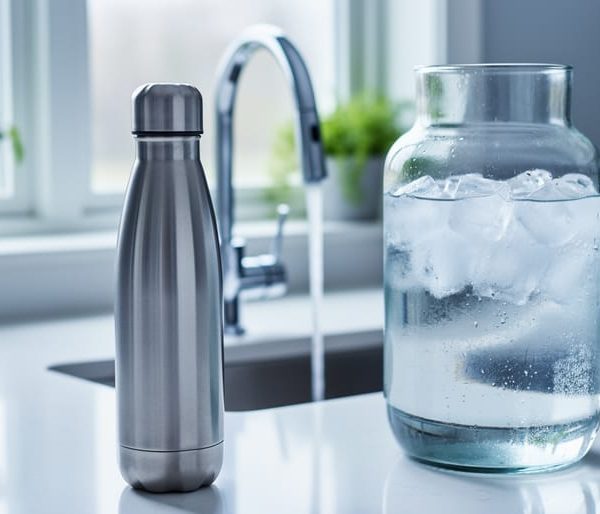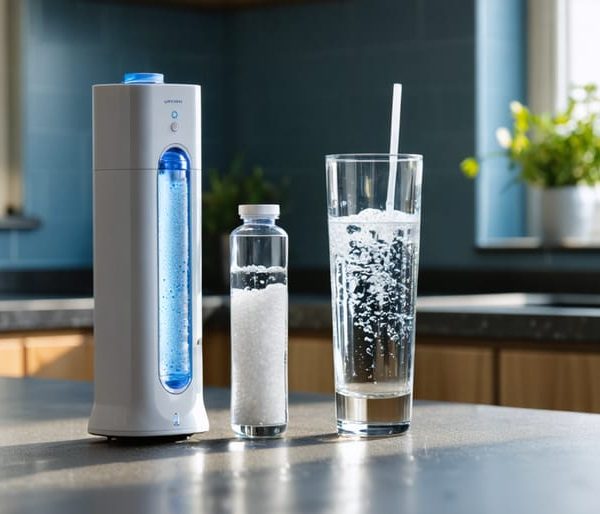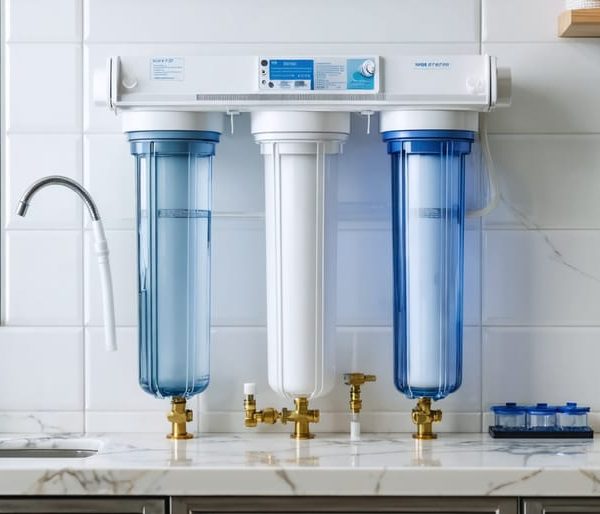Before you choose a water filter, you will need to have a good understanding of the water quality in your house and know exactly what you want to filter out of your tap water.
Although the government has the mandate to provide safe drinking water, there is still the risk of chemicals, pesticides, and bacteria getting into the water. Exposure to this impure water is quite harmful because the contaminants affect the overall water quality.
Cooking water is not a guaranteed solution as it fails in removing contaminants like chemicals and pesticides. Buying bottled water is not the solution either; it is expensive to both the pocket and the environment. Good thing, water filters are easily available and are inexpensive.
Understand the Water Quality
The first step to choosing a filter system is to understand your water quality. Water supply companies will normally provide an annual report. The report will have information about the prevalent contaminants, their percentages, and if the water is safe to drink.
Some people get their water from wells and boreholes. It is not uncommon for these sources to be contaminated by runoffs. Apart from the chemical composition, it is also important to check for bacteria and microbial organisms which may cause disease. The tests can be done via home test kits which are available in local stores.
From our experience, we also recommend that you hand over a sample of your water to a local lab for testing. A lot may be happening between the water source and your tap. Actually, do not be surprised when contaminant levels differ between the report you get from the lab and the one from your water company.
A typical water report will show you the results against the recommended parameters. It will have notes indicating whether the drinking water meets the standard to be considered safe for consumption. It will also indicate what elements, minerals, or harmful contaminants have exceeded the recommended level. After completing the investigation and evaluation, it is now possible to choose the most effective water filter.
Evaluated Your Water Needs
It is a question you must answer before going ahead and purchasing a water filtration system. Manufacturers offer different filters to cater to specific needs. You will have to choose between a whole house filter or a specific point water filter.
Quality Drinking Water Filter
The need to evaluate the water you and your family cannot be overlooked. A quality water filter will normally be fixed in the kitchen where everyone can access it easily. It should adequately deal with all the unhealthy contaminants and pollutants in your water.
Home Use Only
How many water points do you have in your home? For instance, the number of bathrooms. Note that there are filters that work slowly while others can filter copious amounts within a short period.
The analysis will inform whether to filter water at the entry point or localized at the point of consumption.
The Working Principle of a Water Filter
Water filtration systems can work using three methods:
Distillation: This method works by heating the water to boiling temperatures and simply harvesting the steam. The steam then condenses, leaving contaminants and industrial chemicals behind. An additional carbon filter ramps up the effectiveness of distillation.
Reverse osmosis: Reverse osmosis systems are a popular method that utilizes a semipermeable membrane for water filtering. Reverse osmosis ensures that water flows under some pressure along this membrane, separating purified water and contaminants. It may require multiple filters for proper effectiveness. However, the reverse osmosis process may remove beneficial minerals from the water because it catches even the tiniest molecules.
Carbon filtering: Primarily used in water filters to remove bad odors, eliminating chlorine and other organic chemicals. This method is commonly used in undersink filter systems.
Different Types of Water Filters
After evaluating the water supply and analysis of your water needs, you can now select a water filter system confidently. All types of water filter systems operate differently, processing your water using several methods. Some water filters filter water from the point of entry (where the water enters the house), while others filter from a specific point in your house (point of use). Some of the standout water filter systems are:
Whole House Water Filters
Whole-house water filters remove contaminants and pollutants at the point of water intake into your house. Essentially, it will treat all the water you use in your house. So, the water you use for showers, laundry, or gardening is filtered before use.
Before installing a whole house water filter, check the water evaluation report to understand what you want to remove from your water. The filter system also deals with odors, softening the water, and removing sediments.
They are available in various shapes and sizes. Some manufacturers have customized them to provide solutions like:
- Water softeners
- Sediment filtration
- Ultraviolet purification
- Acids neutralizers
- Carbon filters
As much as this water system is great, there are some drawbacks. The high initial setup cost is always a stumbling block. The system can also slow the water flow rate. There is bad news for DIY enthusiasts; installing a house filter on a well will require special skills and professional expertise, which is expensive.
Undersink House Filters
They are smaller in size and can fit under the sink. The system works by diverting all the kitchen sink water to the filter. The filtered water is then dispensed via the faucet. The water filtration system does not store the water but rather filters the water on demand.
You should note that there will be modifications to your plumbing. The cost will vary depending on the type of under sink water filter you decide to install. Convectional undersink systems may be more expensive and require their own special faucet to deliver the filtered water.
Pitcher-Filter
Pitcher filters are essentially useful in eliminating bad odor and improving the taste. The drawdown for pitcher filters, however, is that they only remove selected contaminants like chlorine. The water is contained in a plastic container, where it may pick up some other harmful chemicals.
Countertop Water Filters
Countertop water filters are a popular choice because they are inexpensive and are easy to set up compared to other solutions. The objective is to filter out contaminants, but they also remove the bad taste in water.
Like undersink water filters, you can install a countertop water filter under the kitchen sink so they don’t take up counter space. You can seamlessly hook them onto your faucet. Note that you do not have to refill the water filter container constantly when the water filter is connected to your waterline for the freestanding option.
So, what about maintaining faucet-mounted filters? Is it expensive? The answer is No. Countertop filters do not require special expertise or unique tools for maintenance. After months or years of use, you will only require to replace the filter, which is easy to do.
Shower Filters
A shower filter is not something many people consider. You should note the harm that compounds like chlorine can cause. When the water is heated in your shower, a chemical action may send the chlorine or chloramine component into the air, which can get into your body through breathing or the skin. If left unattended, this may cause harm to you.
A shower filter will therefore deal with all these chemical compounds and other contaminants. After some time, you will realize some positive changes to your hair and skin.
Water Filter Performance
When selecting your water filtration system, be careful to check how quickly the filter degrades. Some filters only work for a few months before they need replacement. If that boat has sailed and you already bought a water filter, you need to check if your water filter is okay. Carry out a post-treatment test that evaluates the quality of your water after treatment.
What Contaminants Does a Water Filter Remove?
The harmful contaminants eliminated by water filters are solely dependent on the manufacturers’ design. Industry and national standards such as the American National Standard Institute demand certain specifications. Some of the most prevalent contaminants and pollutants include that water filters deal with include:
- Inorganic contaminants such as lead, arsenic, and Flouride.
- Organic contaminants such as industrial waste, pesticides, and domestic waste.
- Biological contaminants, including organisms like bacteria, algae, and viruses, may lead to adverse health conditions.
- Radiological contaminants are radioactive components. They may include Uranium and radium, which may increase the risk of cancer.
Cost of Water Filters
The cost of a water filter will depend on various factors. Consequently, we have already established what you need to focus on. The popular choices in the USA are countertops filter systems with a price range of between $60- $500 depending on the complexity and brand.
Whole house filter systems will demand much more. Typical systems average between $1,000 – $4,200. Prices for other systems like undersink start from $200, which is quite inexpensive for your peace of mind and well-being.
Our Final Thoughts
We reiterate that it is imperative to analyze your water first before deciding on the filter to get. We understand that budget also plays a great deal in selecting what to purchase. You could get water systems for as low as $60. The overarching idea is to have clean water that is safe for household use and consumption.



